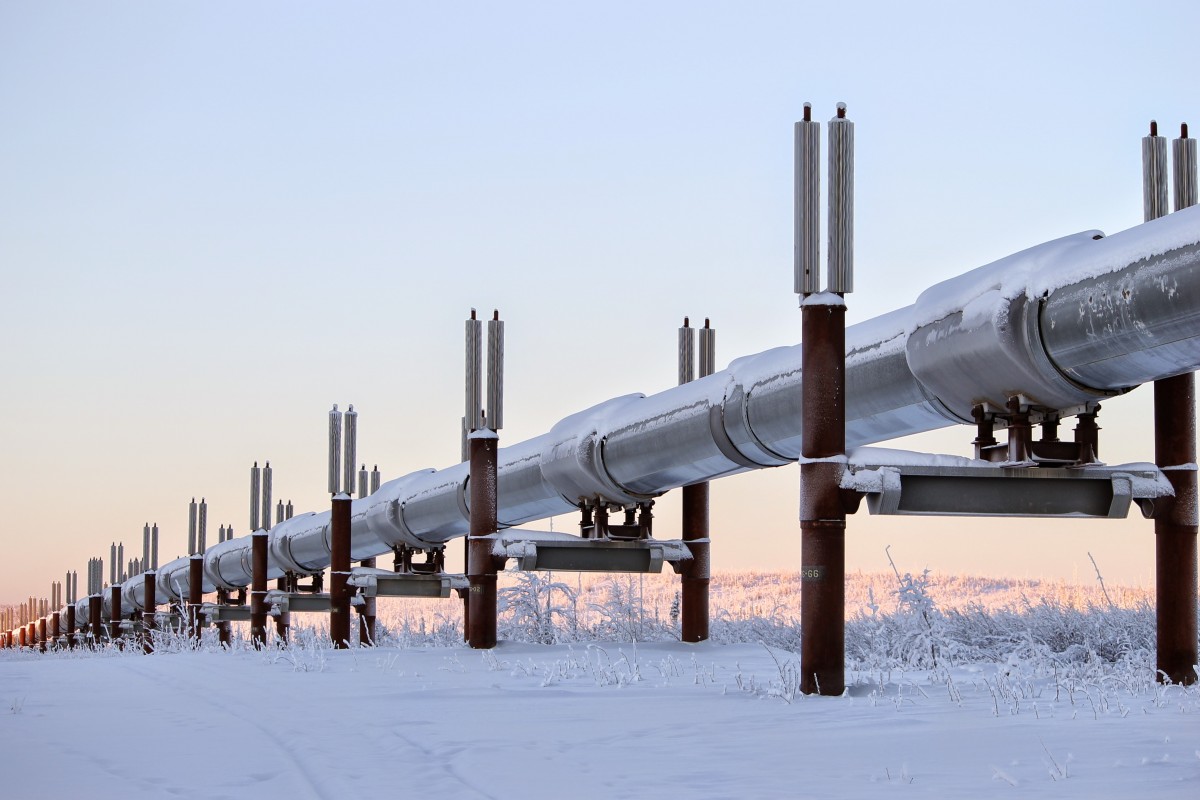Because Russian oil and gas continue to pass through Ukraine

Even though there is war in Ukraine, old pipelines and contracts die hard. The Economist article
As one Ukrainian energy consultant who prefers to remain nameless put it, it's “ironic and ridiculous”: In the midst of Russia's savage war against Ukraine, Russian oil and gas continue to flow through Ukrainian pipelines. Before the war, Europe depended on Russia for 40-45% of its gas imports and about a quarter of its oil. Since then, Russia has attempted to force Europe to drop economic sanctions by cutting supplies; in turn, Europe has almost completely detached itself from Russian energy. But not quite. The continuous flow is partly a holdover from the old system and partly due to contract law, market realities and political expediency.
RUSSIAN OIL PASSES (STILL) VIA UKRAINE
Let's take oil first. Last December, Europe banned oil imports by sea from Russia (with some temporary exceptions). But in a concession to landlocked countries, pipelines have been exempted. In retaliation, Russia closed the northern Druzhba pipeline to Poland and Germany. However, oil continued to flow through the southern Druzhba pipeline, which passes through Ukraine to refineries in the Czech Republic, Slovakia and Hungary. The latter helps Vladimir Putin maintain his special relationship with Viktor Orban, the Hungarian prime minister, who constantly pushes against EU sanctions.
Sanctions prevent these three countries from exporting fuel made from Russian crude to others, with one ironic exception: they can send it to Ukraine. Ukraine's refineries, mostly in the war-ravaged east of the country, have been hit hard. With its Black Sea ports locked down, the only other way Ukraine can get its petrol is by truck or train. “In terms of cynical military strategy, we still need this oil,” says the Ukrainian energy adviser.
THE GAS NEVER STOPPED
Russian gas, on the other hand, has never been blocked. Yet as soon as Europe imposed sanctions, Russia started turning off the faucets. Despite the mysterious destruction of the Nord Stream gas pipeline in September, Russia could have supplied European customers with gas through the Ukrainian network. But when Ukraine closed a pipeline entry point into the occupied territory, Russia refused to pay all transit fees and threatened to cut off the supply. Ukraine has offered to reroute the gas, but Russia has declined. Naftogaz, the state-owned energy company of Ukraine, has taken Gazprom, the Russian company, before the International Court of Arbitration to settle the dispute.
Putin's warning that Europe would "freeze" without Russian gas never came true: the winter was warm and Europe found other sources. By March, Russia's share of European gas imports had dropped to just over 10%. About half is made up of liquefied natural gas purchased from a private Russian company; another quarter goes through the TurkStream pipeline to southern Europe. The rest passes through Ukraine, mainly towards Slovakia and Austria. Analysts expect Russia to cut back on this dwindling flow. The contract between Naftogaz and Gazprom expires at the end of 2024 and it is difficult to imagine it being renewed.
WHAT UKRAINE THINKS
Ukrainian officials say that as long as the Europeans buy Russian gas, they will honor the contract to transport it. It would not be in their interest to risk European support by making a fuss. Keeping the Ukrainian network open also helps European customers who are suing Gazprom for cutting them off: otherwise the Russians could argue that the Nord Stream explosion made delivery impossible.
Ukraine's gas demand has shrunk, with much of its industry destroyed. The country produces almost enough for its needs. But it imports most of its oil, especially diesel for generators used during blackouts and for military vehicles. Ukraine buys diesel from various traders and its origin is often unknown. But the Ukrainian energy adviser confirms, with a half smile, that some of the fuel that powers Ukrainian tanks is probably Russian.
(Excerpt from the press release of eprcommunication)
This is a machine translation from Italian language of a post published on Start Magazine at the URL https://www.startmag.it/energia/ucraina-transito-petrolio-gas-russia/ on Mon, 10 Apr 2023 05:18:14 +0000.
